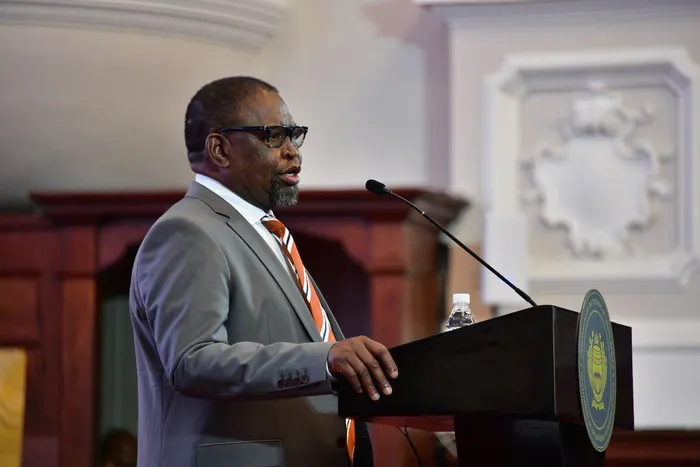Budget 3.0 | Godongwana gears up to table revised national budget

Finance Minister Enoch Godongwana will present the National Budget in Parliament on Wednesday afternoon for the third time this year, after two earlier versions were rejected over proposed VAT increases.
Image: Parliament RSA
Finance Minister Enoch Godongwana will, for the third time this year, present the National Budget in Parliament on Wednesday afternoon after two earlier attempts were rejected due to proposed VAT increases.
Markets are hopeful the fiscal framework will now pass, and the rand is expected to gain ground against the dollar briefly breaking R18 to the greenback barrier on Tuesday, following a similar move last Friday.
The previous two budget proposals failed to gain approval, and markets had been concerned over DA threats to leave the multi-party government. Since then, Cabinet has approved the proposed framework.
The February budget, which suggested raising VAT from 15% to 17%, was rejected amid widespread opposition from political parties in what was a first in South Africa’s democratic history.
A March revision proposed a smaller VAT increase of 0.5 percentage points. This second attempt was clouded by uncertainty over whether the VAT hike had been approved and was legally challenged by the DA and EFF.
Just days before a court ruling was due – set for a day before the VAT increase would take effect – Godongwana reversed course and withdrew the VAT hike proposal, a decision later upheld by the court.
While scrapping the VAT increase offers some relief to consumers, it forces Godongwana to revisit government’s income sheet. The government now faces a R75 billion revenue shortfall due to the absence of the VAT hike.
Investec chief economist Annabel Bishop expects “moderate” sin tax increases, including likely fuel levy hikes, to help bridge the gap. “The take from excise duties (sin taxes) is estimated at an additional R1bn in March and may be slightly higher,” she said.
In a recent note, Bishop said significant income tax hikes are unlikely, meaning National Treasury will need to reduce spending. She also noted corporate tax increases are unlikely due to their negative impact on growth and jobs.
Old Mutual chief economist Johann Els agrees that spending cuts are inevitable but warns this could affect essential services like nursing and education.
At the same time, Bishop pointed out that National Treasury has acknowledged the need to strengthen tax collection by the South African Revenue Service, increasing its funding. She noted that SARS is owed about R800bn in unpaid taxes, while the budget deficit funding gap was estimated at R375bn for 2024/25 in the March budget.
IOL
Related Topics: